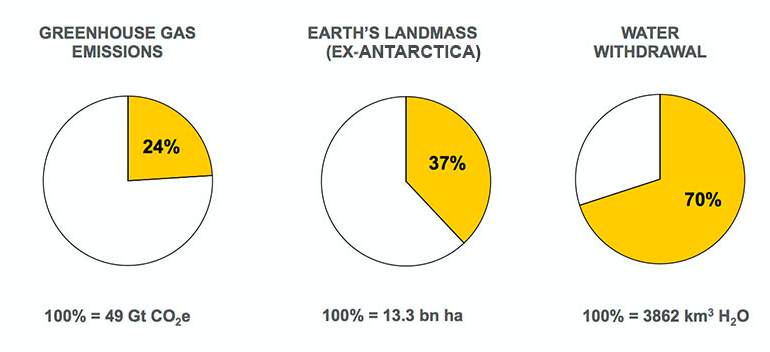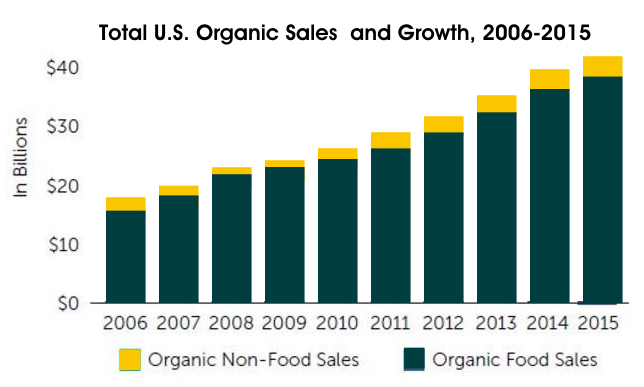Our global food industry has sustained more people with increased efficiency and at a lower cost than any other period in human history. The problem is that agriculture continues to have an astounding and detrimental influence on global health and the environment.
Polluted waterways caused by fertilizer runoff affect the majority of the planet, harmful growth hormones are traced in the meat we eat, malnourishment persists across developing nations, a profound obesity epidemic exists in first world economies and several million pounds of food is unnecessarily wasted every year. Now the leading cause of deforestation, one of the largest sources of greenhouse gas emissions and a major contributor to biodiversity’s 6th extinction, global agriculture must evolve to ensure our own survival. The highly centralized and industrial system of producing cheap and commoditized food is unsustainable and therefore will never last. Innovation in agricultural practice is inevitable and will soon be known around the world as the New Green Revolution.
Agriculture’s Environment Impact
(% total)
Source: World Resource Institute (2016)
Agriculture plays a crucial role in the world not only as a principal means of sustaining life but also as an integral part of the global economy. It is an attractive and profitable business, due in part to its ability to fulfill one of mankind’s most primal needs – the need for sustenance. Food and agribusiness form a $5 trillion global industry, according to the latest figures, and will only become bigger due to a series of fundamental drivers that combine the unprecedented rise of the global population at a time of limited resource supply.
On the production level, innovations are mainly in low-energy, low-input and natural practices for agriculture. This is also supported by precision technology that can collect and analyse plant data such as health, pests, water requirements and nutritional needs all on the fly. As costs of fossil fuels and synthetic inputs rise, natural-input and sustainable farming techniques become safer, more productive and economically viable. Organic and environmentally-safe bio fertilizers and bio pesticides are competing with their synthetic counterparts and the latest research and product development within the sector exists in this field.
On the consumer side, the largest disruption in agriculture will be the global search for healthier foods with cleaner and recognisable ingredients. As eaters demand better produce and budget more of their household spending power to sustain a healthy diet, the, mass-production model premised on distant farms and long-range shipping will face disruption. New markets will grow and develop for fresher and more nutritional produce, at higher prices.
Source: Organic Trade Association (2016)
Ultimately the answer to innovation in our global food system will lie in our ability to produce win-win-win scenarios that benefit the producer, the consumer and the environment. Food is at the heart of many of the world’s environmental, social and economic challenges. The issues are complex and interconnected, and cannot be solved by addressing food production or consumption separately. Sustainable farming is a powerful guiding principle for accelerating progress towards a sustainable food system and organizations that drive the new green revolution such as our own are well on their way to experiencing tremendous growth in this new economy.

